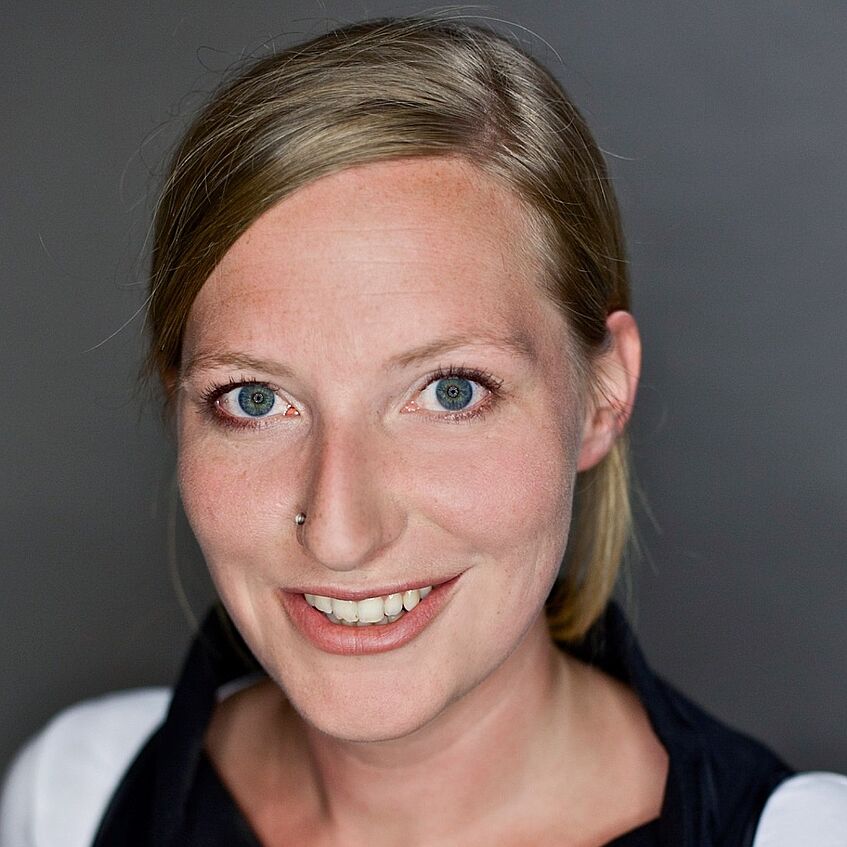
Dr. Ilona Grabmaier, BA MA
Lecturer
Contact
Department of Social and Cultural Anthropology
Universitätsstraße 7, 1010 Wien
NIG, 4th floor
Room: C0419
E-Mail: ilona.grabmaier@univie.ac.at
Member of the research group CaSt:
https://www.univie.ac.at/cast/members/ilona-grabmaier/
Office Hours
After previous registration via email: ilona.grabmaier@univie.ac.at
Research Focus Areas
- Care
- Anthropology of Morality/Ethics
- Anthropology of the State
- Kinship
- Gender und Difference
- Ageing and Generations
- (Post-)Socialism and Eastern Europe
Short Biography
Ilona Grabmaier is a lecturer at the Department of Social and Cultural Anthropology and also works as a researcher and project manager at an NGO in Vienna. In August 2023, she graduated with a dissertation on the topic "Stayed at home. (Re)Configurations of Care in Rural Ukraine" at the University of Vienna. Previously, she worked as a lecturer and research assistant at the Department of Social and Cultural Anthropology and as a research fellow and doctoral candidate in an interdisciplinary doctoral program. Her current research interests focus on questions concerning the (re)production of social (in)equality and security at the intersection of politics, gender relations, care practices, morality and post-socialist transformation.
Dissertation Project
Stayed at home. (Re)Configurations of Care in Rural Ukraine.
Supervisor: Tatjana Thelen
Since the early 2000s, due to increasing poverty and unemployment in connection with a supposed ‘care crisis’ in the West, more and more women from rural areas in western Ukraine leave their homes to work as caregivers or domestic aid in central or southern Europe in order to contribute to the livelihood of their families. While both the situation of female labour migrants in receiving countries and their efforts to maintain transnational care relations with relatives via different forms of exchange are ethnographically relatively well studied, we still know very little about how the (labour)migration of women affects the family members who stay at home. Previous research on the effects of female labour migration has primarily focused on the absence of women and mothers and the central role ascribed to them regarding emotional and material care for their children, husbands and parents. Analytically, this focus on the perspectives of women and mothers is considered as problematic, as the ‘naturalisation’ of motherhood and related care expectations and responsibilities overshadow other actors who might be equally important in the provision of care. At the same time, care responsibilities are predominantly located in the realm of kinship and the consequences of care practices and kinship are considered essentially positive.
In her dissertation, Ilona emphasises re-configurations of care of and for ‘left behind’ men, children and senior citizens. Based on a total of fourteen months of ethnographic field work in a village in western Ukraine, she analyzes the complex processes by which people try to build a life worth living for themselves and for future generations. This includes emotional, material and practical forms of support from relatives, neighbors, friends, but also state institutions. Special attention is paid to the negotiations of belonging and (un)deservingness as well as their implications and consequences.
Analyzing the negotiations of care and care responsibilities between ‘left behind’ family members and state institutions offers privileged insights into newly emerging local, national and global inequalities as well as inclusions in and exclusions from families, local communities and the state. These processes and the resulting findings are not only of high social and political relevance; in view of global migratory movements, the implementation of neoliberal policies and the associated transformation of the welfare state, they are also of theoretical interest far beyond the context of Eastern Europe.
The suggested approach for investigating care practices at the intersection of kinship, state and morality can thus also be helpful in other research contexts to better understand both questions of moral responsibility in caring for oneself and others as well as processes of inclusion and exclusion through care.
Selected publications
- (in preparation) 2024 „Daheimgeblieben. Re-/Konfigurationen von Sorge in der ländlichen Ukraine“ (Monograph; accepted for publication at Böhlau Verlag).
- (in preparation) 2024, with Nino Aivazishvili-Gehne, „New East-West Migrations: Movements from and within the global East“ (in preparation for the anthology „1989 and the Great Transformation“ at Routledge).
- 2023 „Die Grenzen gegenseitiger Unterstützung: Il/legitime Bedürftigkeit und die prozessuale Herstellung von (un)deservingness.“ In: Lushaj, D., Remestwenski, Y., Rozmus, J. (eds.): Anthology for the conference „What remains of Galicia? – Continuities, ruptures, perspectives“, Wien: Wiener Galizien Studien, Vienna University Press: 145 – 170.
- 2022 “Negotiating the limits of care: moralised constructions of (un)deservingness in rural Ukraine”, in: Vienna Working Papers in Ethnography, No. 12: 1 – 35.
- 2020 „Alleinsein im Alter: Herausforderungen durch Covid-19 in der ländlichen Ukraine“, ZOiS Spotlight 24/2020.
